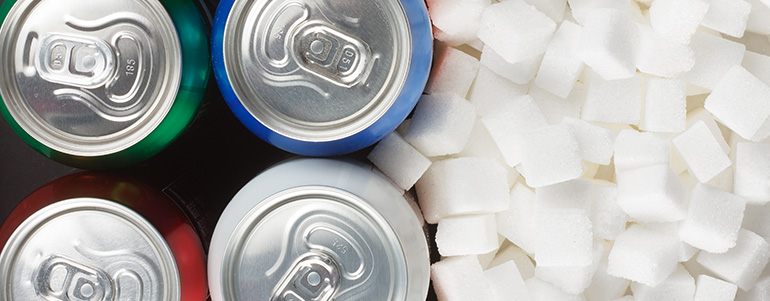Sugar tax - taxing unhealthy behaviours

19 Aug 2016
How the sugar tax will affect the food industry
The tax on unhealthy products is becoming more prevalent around the world. In spring 2016, the UK made the announcement of a sugar tax on sugary-drinks manufacturers, increasing the price of drinks that contain at least 5g of sugar per 100ml. For drinks with 8g of sugar per 100ml or more, a higher rate of tax will be applied from April 2018.
The UK joins several other countries around the world focusing on reducing consumer behaviour of products viewed as unhealthy, indeed Mexico, France, Hungary and Finland, among others, have already applied a sugary drinks tax. South Africa, the Philippines, Italy, Indonesia and India are also considering doing so.
So what can manufacturers do? There are a number of options that beverage manufacturers can consider in preparation of the tax.
- Pass the cost on to the consumer – increasing the point of sale (POS) price
- Take the cost on – increasing operational costs
- Change the recipe
While the tax is aimed at curbing consumer uptake, it's really up to the consumer to make the behavioural change to their lifestyle to ensure a balanced diet and healthy regime.
For the manufacturers, you should view this change as an opportunity to review and refresh your products. Regardless of your choice to pass on the tax on your classic recipe, you should look into options for a low sugar/ sugar free range to provide consumers with a choice.
Don't think because you are not a sugar drinks manufacturer this doesn't affect you. The implications of unhealthy taxes could come in for an entire range of products viewed as high in fat or high in salt to name a few. Indeed both Hungary and Finland have already applied taxes to some unhealthy foods, so wouldn't you rather be ahead of the curve?
Think about change today and your preparations in advance, consider sugar alternatives or low fat options and have your products verified against a sensory panel of experts to judge your product on odour, taste, look and consistency to allow you to tweak your product. Think about your market health claims make sure these can be scientifically substantiated. And don't forget to ensure food labelling requirements meet the stringent regulations around the globe providing correct nutritional analysis detail and shelf life analysis.
Useful link:
https://www.intertek.com/food/sector/new-product-development/
New Product Development Booklet:
https://www.intertek.com/knowledge-education/new-food-product-development/
